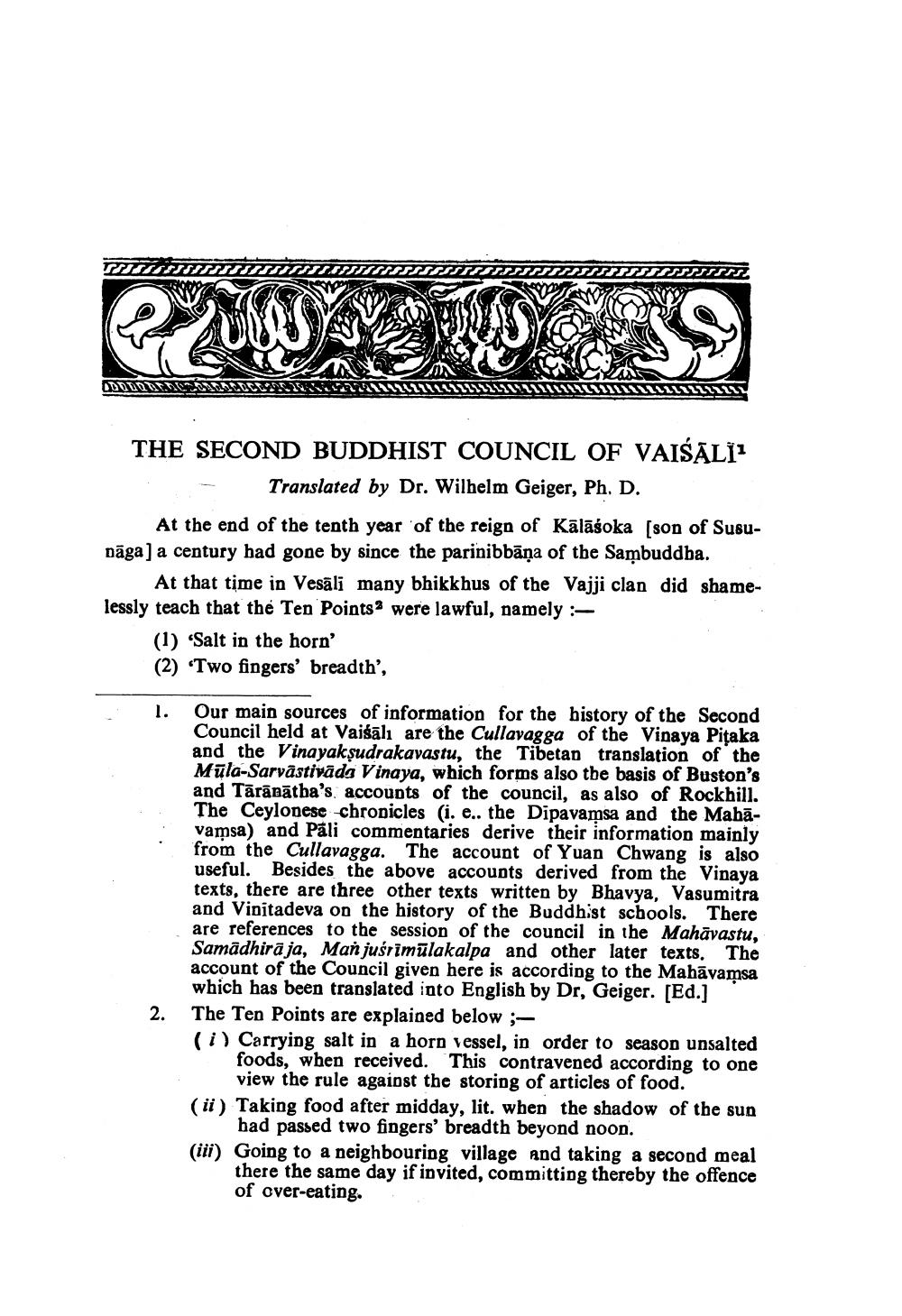________________ LL vo MACO THE SECOND BUDDHIST COUNCIL OF VAISALI Translated by Dr. Wilhelm Geiger, Ph. D. At the end of the tenth year of the reign of Kalasoka [son of SusuDaga) a century bad gone by since the parinibbana of the Sambuddba. At that time in Vesali many bhikkhus of the Vajji clan did shamelessly teach that the Ten Points were lawful, namely : (1) "Salt in the horn' (2) 'Two fingers' breadth', 1. Our main sources of information for the history of the Second Council held at Vaisali are the Cullavagga of the Vinaya Pitaka and the Vinayaksudrakavastu, the Tibetan translation of the Mula-Sarvastivada Vinaya, which forms also the basis of Buston's and Taranatba's, accounts of the council, as also of Rockhill. The Ceylonese chronicles (i. e.. the Dipavamsa and the Mabavamsa) and Pali commentaries derive their information mainly from the Cullavagga. The account of Yuan Chwang is also useful. Besides the above accounts derived from the Vinaya texts, there are three other texts written by Bhavya, Vasumitra and Vinitadeva on the history of the Buddhist schools. There are references to the session of the council in the Mahavastu, Samadhiraja, Man jusrimulakalpa and other later texts. The account of the Council given here is according to the Mahavamsa which has been translated into English by Dr, Geiger. [Ed.] The Ten Points are explained below ;(i) Carrying salt in a horn vessel, in order to season unsalted foods, when received. This contravened according to one view the rule against the storing of articles of food. (ii) Taking food after midday, lit. when the shadow of the sun " AS01 W ay, howed a shadow of the sun had passed two fingers' breadth beyond noon. (iii) Going to a neighbouring village and taking a second meal there the same day if invited, committing thereby the offence of over-eating.




